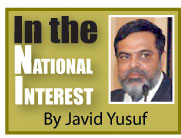Columns
Greater diligence in governance a must
View(s): The current challenges for governance in Sri Lanka stem from a variety of causes ranging from fluctuating prices for imports such as fuel and food in the global market, but also unanticipated events, such as the COVID pandemic, over which the country has little control.
The current challenges for governance in Sri Lanka stem from a variety of causes ranging from fluctuating prices for imports such as fuel and food in the global market, but also unanticipated events, such as the COVID pandemic, over which the country has little control.
One would have thought that in such a situation those entrusted with the task of governance would exercise such powers with utmost care and diligence. Any policy sought to be adopted or any decision sought to be taken, would rightly have to be subject to rigorous evaluation before a final decision.
The level of care in arriving at such decisions must exceed the care and due diligence the decision makers would have taken if it related to their private property or assets, because they had been entrusted with such powers by the sovereign people.
Unfortunately from recent reports that are emerging it is evident that sufficient care is not taken before embarking on ventures which may have far reaching consequences to the country. The recent phenomenon of Government gazettes being issued on various matters only to be withdrawn days later shows that there had not been sufficient discussion on the matter before the original decision was taken.
Another case in point is the Government’s decision to insist on farmers using organic fertiliser instead of chemical fertiliser. After announcing the decision the Government has been compelled to keep making several modifications in its original plans due to lack of adequate pre planning prior to embarking on such a vital and far reaching decision.
In an interview published in the Daily Mirror, Agriculture Ministry Secretary Udith Jayasinghe said when they prepared President Gotabaya Rajapaksa’s policy document ‘Vistas of Prosperity and Splendour,’ it was clearly said that the switch over from chemical fertiliser to organic was a process to be achieved over a decade.
He said the cancellation of the use of chemical fertiliser was announced in a gazette notification which was based on wrong advice which he believes should not have happened.
This is a clear case of inadequate care being exercised before a decision that has far reaching consequences for the country was taken. The net result is the entire agricultural sector being thrown into turmoil and the productivity of the sector being adversely affected. The prospect of a food crisis is very real. All because hasty and ill thought out decisions are taken without a thorough examination of the pros and cons of taking such a decision.
The shocking process of careless decision making seems to be happening in the case of the Yugadhanawi Power Plant Agreement involving the US-based company New Fortress Energy. According to Minister Wimal Weerawansa the agreement was never placed before the Cabinet for approval.
According to him at the Cabinet meeting in which this deal figured it was referred to under any other business but was not placed before the Cabinet or discussed. However much to Minister Weerawansa’s surprise the minutes of that Cabinet meeting stated that the Cabinet had discussed the matter and approved it.
Irrespective of the pros and cons of the deal with New Fortress Energy, the entire process seems to be shrouded in mystery. Media reports reveal that the Agreement was signed at midnight which in itself gives rise to misgivings.
According to Minister Udaya Gammanpila tenders had been called for in relation to the Yugadhanawi Power Plant but New Fortress Energy who had earlier shown interest in the project had not submitted tenders. Mr. Gammanpila also made the telling accusation that the US Company had refrained from submitting tenders because they had been assured of the deal.
The Yugadhanawi deal has been criticised on several grounds. There are several technical, commercial and security dimensions to the deal. Many professionals
including engineers Parakrama Jayasinghe and Nalin Gunasekera and Neville Laduwahetty have written to the media on the subject setting out their views in detail regarding the matter through which the people have been greatly enlightened.
Unfortunately the Cabinet has not had the benefit of such a discussion with the matter only figuring under “any other business.” In fact the whole matter is of such a technical nature that the Cabinet will greatly benefit from a comprehensive briefing from a team of professionals. Such a briefing will enable the Cabinet to take an informed decision on the matter.
According to media reports what has been signed has been described as a framework agreement between New Fortress Energy and the Government.
Widespread protests have greeted the news of the deal with the New Fortress Company. The jurisdiction of the Supreme Court has been invoked against the deal. If the Cabinet and the Government do not take care to study the implications of this deal thoroughly before taking a final decision they would have failed in their duty to the nation.
The benefit of informed decision making aided by professional inputs was seen when the Government acceded to the last lockdown as a result of the COVID-19 pandemic. Despite the figures of COVID-19 patients and COVID-19 deaths increasing, the Government stubbornly resisted calls by medical professionals to impose a lockdown. Finally the Mahanayake theros stepped in and urged the Government to accede to the request of the medical professionals to order a lockdown, which the Government finally did.
As a result the country probably averted a veritable medical disaster.
(javidyusuf@gmail.com)


Leave a Reply
Post Comment